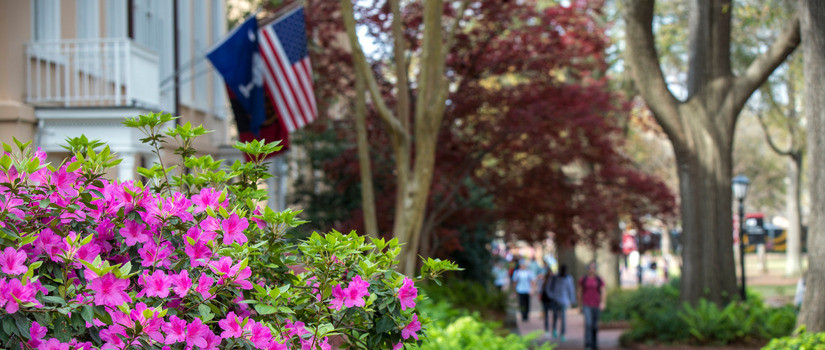Our Shared Challenge
There is little doubt that we are a highly polarized nation. In addition to disagreements about the most important moral, political and religious matters, we often appear to have lost a shared sense of the urgency of overcoming polarization, of listening to one another, of engaging in reasoned discourse rather than angry shouting.
This polarization is mirrored in increasing forms of distrust of our public institutions of governance, inquiry, and communication. Politicians, universities, the mass media: all seem to have lost the faith of citizens.
Finally, we have lost those forms of conversational, cultural, and civic literacy that we once could draw upon as a people to seek unity and restore order to our contemporary divisiveness. Thus our present challenge: How can we, as educators, students, citizens, make progress in restoring our common ties of civic friendship and reciprocity?
Our Mission
The South Carolina Center for Civic Leadership and Public Discourse aspires to promote three kinds of literacy that are essential to a well-ordered and flourishing polity:
Dialogic Literacy
Dialogic literacy provides the skills needed to make a rational argument. These skills enable participants in important debates to recognize the difference between reasoned belief based on evidence and mere opinion. And they shape the effort needed to make disagreement both civil and constructive.
Cultural Literacy
Cultural literacy requires knowledge of the sources, texts and traditions that go into making us who we are as a people, including who we are as a people who often disagree with one another. Our founding documents, and the philosophic, political, literary, and religious traditions out of which they emerged, aimed to identify core values and aspirations central to the American character. These values and aspirations were intended to bind us together even when other significant commitments – moral, political, religious – might be in conflict.
Civic Literacy
Civic literacy brings the other two forms of literacy to bear on the central questions of citizenship: what does it mean to be a good citizen, and what are the tasks of good citizenship? The questions of citizenship cannot be answered without sound reasoning and productive debate; and answering those questions well requires that we draw from the inherited wisdom of our common culture. But civic literacy requires something more: a commitment to work for the sake of the common good. The Center for Civic Leadership and Public Discourse hopes to inspire those who share in our mission to renew their commitment to work for the common good of our University, our State, and our Nation.
Our Approach
How will the Center for Civic Leadership promote these three forms of literacy? Although only in its infancy, the Center has an initial roadmap to guide the way, focusing especially on:
Public Events presenting reasoned debate, intellectual diversity, and our common intellectual and political traditions. Drawing from widest range of scholarly and civic excellence, we have begun to put together a calendar of speakers and events that will reignite interest in and commitment to our shared history and ideals, to the life of free inquiry and the pursuit of truth, and to reciprocity and civility even in the midst of disagreement.
Curricular Initiatives, such as interdisciplinary minors and undergraduate and graduate scholar programs. These initiatives will promote the three forms of literacy among our students while also encouraging a love of life-long learning and intellectual, moral, and political engagement.
Scholarship centered on our deepest disagreements, our common ideals and traditions, and the shaping of public policy aimed at the common good. We aim to produce scholarship of the highest possible quality in an environment of intellectual freedom and inquiry. To that end, the Center will sponsor faculty hires in several possible disciplines, and make post-doc and visiting scholar opportunities available to academics from other universities who share in the Center’s mission.
